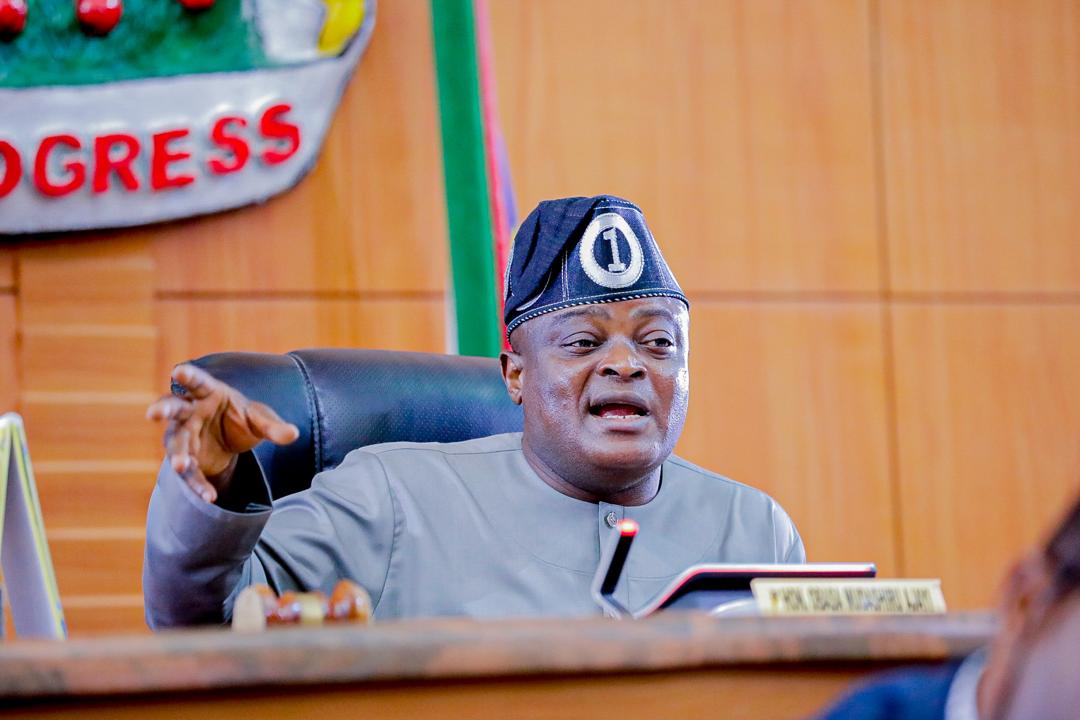Dramatic changes swept through the Lagos State House of Assembly on Monday as lawmakers impeached Speaker Mudashiru Obasa in a sudden move that has sent shockwaves through the state’s political landscape. The impeachment, carried out during a plenary session, saw Deputy Speaker Mojisola Meranda ascending to the position of Speaker in a significant leadership reshuffle.
The removal of Obasa, which sources describe as happening in a “gestapo manner,” came amid multiple allegations of fraudulent activities, though specific details of these allegations have not been made public. The development marks a significant shift in the power dynamics of one of Nigeria’s most influential state legislatures.
Adding to the day’s dramatic events, the Assembly also removed House Clerk Olalekan Onafeko, who was reportedly appointed directly by Obasa. Both officials had been criticized for their role in restricting media access to assembly activities, implementing a controversial ban on journalists covering legislative proceedings.
Security measures were swiftly implemented following the impeachment, with heavy presence of armed personnel from the Rapid Response Squad (RRS), Lagos Task Force, and Police taking control of the Assembly premises and surrounding areas. The security forces restricted access to the complex, turning away both vehicles and pedestrians attempting to enter the grounds.
Attempts to reach Obasa’s office for comment have proven unsuccessful, with his Chief Press Secretary, Eromosele Ebhomele, remaining unresponsive to both phone calls and text messages seeking clarification on the situation. This silence from Obasa’s camp has only added to the intrigue surrounding the sudden leadership change.
The elevation of Mojisola Meranda to the position of Speaker represents a historic moment for the Lagos State House of Assembly. Her emergence as substantive Speaker follows her previous role as Deputy Speaker, where she had worked closely with the now-impeached Obasa.
The impeachment and subsequent security deployment highlight the sensitive nature of the situation and suggest possible tensions within the Assembly. The presence of multiple security agencies around the complex indicates authorities’ determination to maintain order during this period of transition.
This development comes as a significant shift in Lagos State politics, where the House of Assembly plays a crucial role in governance and policy-making. The impeachment of a Speaker, particularly one as influential as Obasa, could have far-reaching implications for the state’s political landscape and legislative processes.
The removal of both the Speaker and Clerk on the same day suggests a coordinated effort to implement comprehensive changes in the Assembly’s leadership structure. The dual removals may indicate broader concerns about the Assembly’s management and operations under the previous leadership.
The ban on journalists covering Assembly activities, which was implemented under Obasa and Onafeko’s leadership, had drawn criticism from media practitioners and transparency advocates. This restriction on press access had raised questions about the Assembly’s commitment to openness and accountability in its proceedings.
The sudden nature of these changes, combined with the immediate security response, underscores the sensitivity of political transitions in Nigeria’s legislative bodies. The deployment of multiple security agencies suggests authorities’ awareness of the potential for unrest or disruption during such significant political changes.
As Lagos State’s political landscape adjusts to this sudden change in legislative leadership, questions remain about the specific allegations against Obasa and the immediate circumstances that led to his impeachment. The coming days are likely to reveal more details about the situation as stakeholders process these significant developments in one of Nigeria’s most important state legislatures.
The transition in leadership comes at a crucial time for Lagos State, and observers will be watching closely to see how these changes affect the Assembly’s operations and its relationship with other branches of state government. The new Speaker, Mojisola Meranda, faces the immediate challenge of stabilizing the House while maintaining its crucial legislative functions.



